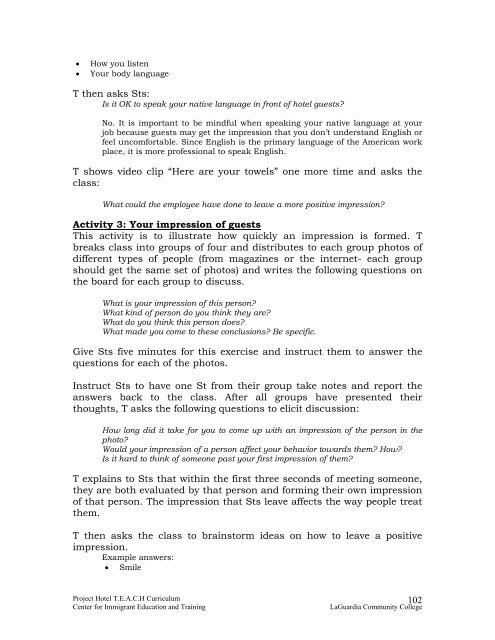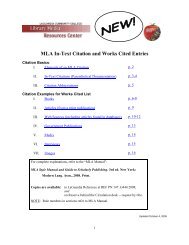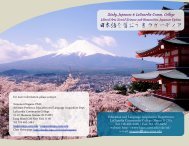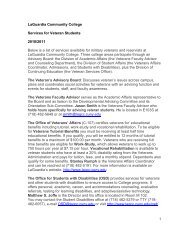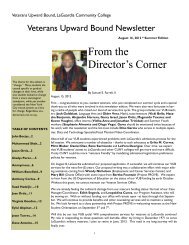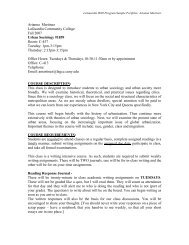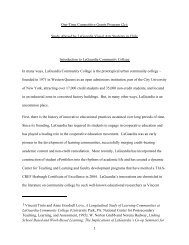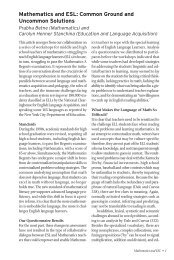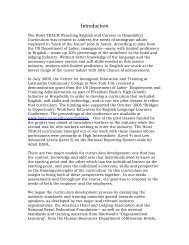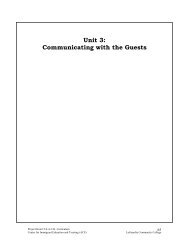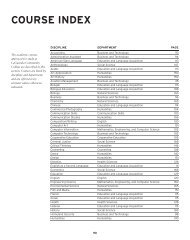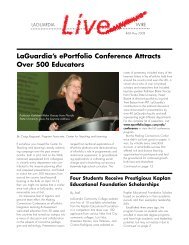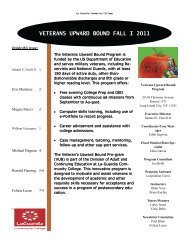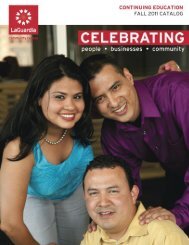Unit 4: Explaining Hotel Services to Guests and Providing Information
Unit 4: Explaining Hotel Services to Guests and Providing Information
Unit 4: Explaining Hotel Services to Guests and Providing Information
Create successful ePaper yourself
Turn your PDF publications into a flip-book with our unique Google optimized e-Paper software.
• How you listen<br />
• Your body language<br />
T then asks Sts:<br />
Is it OK <strong>to</strong> speak your native language in front of hotel guests?<br />
No. It is important <strong>to</strong> be mindful when speaking your native language at your<br />
job because guests may get the impression that you don’t underst<strong>and</strong> English or<br />
feel uncomfortable. Since English is the primary language of the American work<br />
place, it is more professional <strong>to</strong> speak English.<br />
T shows video clip “Here are your <strong>to</strong>wels” one more time <strong>and</strong> asks the<br />
class:<br />
What could the employee have done <strong>to</strong> leave a more positive impression?<br />
Activity 3: Your impression of guests<br />
This activity is <strong>to</strong> illustrate how quickly an impression is formed. T<br />
breaks class in<strong>to</strong> groups of four <strong>and</strong> distributes <strong>to</strong> each group pho<strong>to</strong>s of<br />
different types of people (from magazines or the internet- each group<br />
should get the same set of pho<strong>to</strong>s) <strong>and</strong> writes the following questions on<br />
the board for each group <strong>to</strong> discuss.<br />
What is your impression of this person?<br />
What kind of person do you think they are?<br />
What do you think this person does?<br />
What made you come <strong>to</strong> these conclusions? Be specific.<br />
Give Sts five minutes for this exercise <strong>and</strong> instruct them <strong>to</strong> answer the<br />
questions for each of the pho<strong>to</strong>s.<br />
Instruct Sts <strong>to</strong> have one St from their group take notes <strong>and</strong> report the<br />
answers back <strong>to</strong> the class. After all groups have presented their<br />
thoughts, T asks the following questions <strong>to</strong> elicit discussion:<br />
How long did it take for you <strong>to</strong> come up with an impression of the person in the<br />
pho<strong>to</strong>?<br />
Would your impression of a person affect your behavior <strong>to</strong>wards them? How?<br />
Is it hard <strong>to</strong> think of someone past your first impression of them?<br />
T explains <strong>to</strong> Sts that within the first three seconds of meeting someone,<br />
they are both evaluated by that person <strong>and</strong> forming their own impression<br />
of that person. The impression that Sts leave affects the way people treat<br />
them.<br />
T then asks the class <strong>to</strong> brains<strong>to</strong>rm ideas on how <strong>to</strong> leave a positive<br />
impression.<br />
Example answers:<br />
• Smile<br />
Project <strong>Hotel</strong> T.E.A.C.H Curriculum<br />
Center for Immigrant Education <strong>and</strong> Training<br />
102<br />
LaGuardia Community College


